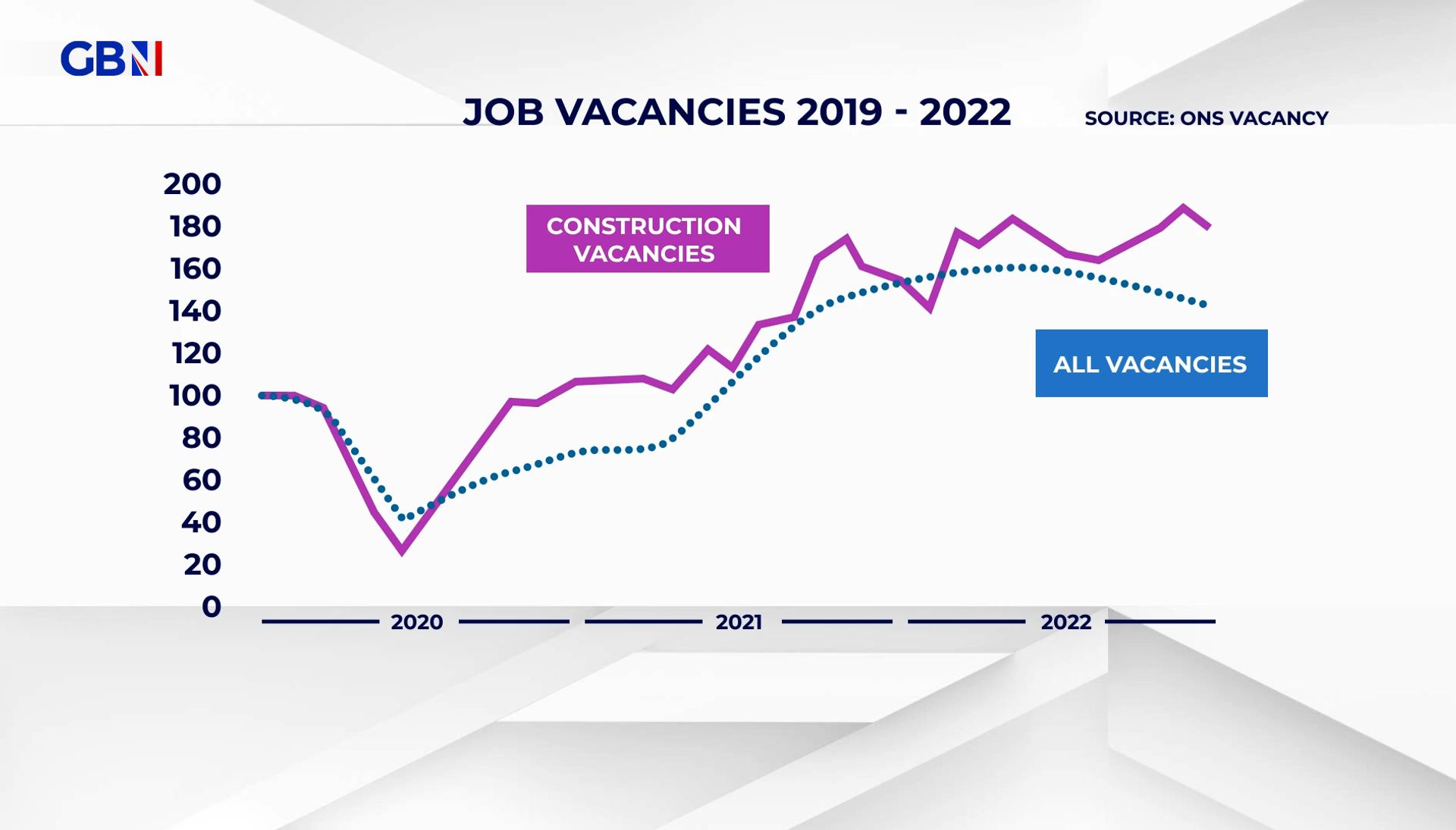UK businesses see ‘rapid growth’ as pivotal industry seeks 45,000 new workers A YEAR in major employment boom

Companies across the UK are taking on apprentices in order to meet the wider industry demands
Don't Miss
Most Read
Latest
To meet the UK’s construction output demands, 224,900 extra workers will be required according to industry experts. An increase of just under 45,000 per year is needed over the next five years to meet the expected output according to the latest Construction Skills Network report.
The report explains that construction companies have faced significant input cost inflation from supply chain disruptions, high energy costs, and soaring wage bills cause by worker shortages. However, construction output has performed better than expected, with estimated annual growth of around 4% during 2022.
Tim Balcon, Construction Industry Training Board Chief Executive said: “The latest Construction Skills Network report clearly shows that despite current economy uncertainty, recruitment and developing the workforce remains vital to ensure the industry can contribute to economic growth.
Project manager Stephanie O'Dywer
GB News
He added: “From building the homes the country needs, to constructing energy and transport infrastructure and retrofitting the built environment to help drive down energy bills and meet net zero targets to the need to recruit and retain talent in the sector has arguably never been greater.
The construction industry has a long-term challenge when it comes to recruiting workers with high level of job vacancies and if low levels of unemployment continue. Recruiting the training workers for the future remains critical to ensure the industry can contribute to growth, such as building the homes the country needs, the infrastructure for energy and transport to retrofitting the built environment to meet net zero targets.
The construction industry still has a long-term challenge in recruiting workers with high level of job vacancies and low levels of unemployment likely to persist. Recruiting and developing the workforce for the future remains vital to ensure the industry can contribute to growth, such as building the homes the country needs, the infrastructure for energy and transport and retrofitting the built environment to meet net zero targets.
Companies across the UK are taking on apprentices in order to meet the wider industry demands. An independent construction and property consultancy company, Gardiner & Theobald has been recruiting apprentices straight from school for years.
Stephanie O’Dwyer has been training as a Project Manager. She said: “It was tough because you have to balance work with study, but it was the most rewarding experience. You’re working four days a week in the office, one day a week to study – it’s the perfect balance.”
“You’re getting a university degree, whilst you’re still getting the real-life practical theories. You are relating theory in the classroom, to the real-life practical experience.”
She added: “You’ll be learning about foundations and piling and then all of a sudden, you’ll be on site the next day and see what they’re doing on site and how it works in the real world. It cements your learning in a way that reading from a textbook, I don’t think can do. You are treated as an adult who isn’t doing an apprenticeship.”
Another company taking on this approach is an Architectural and Builders Surveyors company in Essex, Munday and Cramer.
GB News
Company Director, Lee Hatwell says apprenticeship programmes are the perfect way to get more people into the industry.
“We’ve got a small SME, with 33 staff and we’ve had rapid growth in the business over the last 10-15 years.”
“The crucial thing is because they learn as they work, they’re applying what they’re doing at university, their studies become more relevant to them. We try to marry their studies to what they’re physically doing, and we move them around as they get through their degree courses. All the apprentices that have achieved their degrees have got First Class degrees.”
“We select all of them from school, we go back into schools as part of the enterprise work that we do. We select them from careers fairs, we put them through work experience, and we’ve found that to be an amazing way as getting to know them as young people as they develop.”
While the trend for apprenticeship starts is positive, the Construction Network Skills report says it isn’t quite the same picture when looking at the wider range of construction training achievement.
In 2021/2022 Northern Ireland construction training achievements were above the levels seen in previous years, while in Wales there was an increase compared to the previous year, although only back to 2018/2019 levels. Like Wales, England saw an increase in 2022 when compared to 2020, however, volumes are lower than was achieved in 2021 and 2019.









